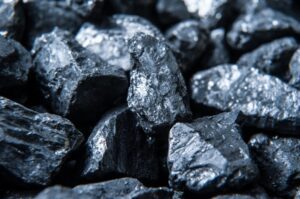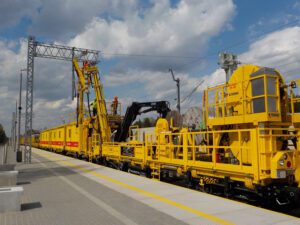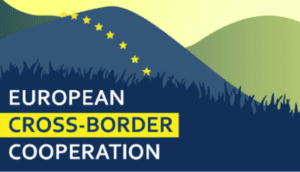
From day to day Ukraine expects deliveries of gasoline from the state reserve of Poland, which were supposed to cover a quarter of consumption in May.
This was announced by First Deputy Minister of Economy of Ukraine Denys Kudin during the talk show “Ukrainian Petroleum Products Market: Temporary Crisis or Large-Scale Collapse?” organized by the Energy Club on Monday.
According to him, unlike diesel fuel, the volumes of gasoline imports into the country currently do not cover the volumes of its consumption.
“And here we are counting on the help of our European partners, in particular, the Polish state reserve, which promised to give us approximately a quarter of the consumption in May. We are expecting this supply from day to day,” Kudin said.
At the same time, according to him, the volume of imports of diesel fuel to Ukraine is currently 20% higher than the volume of its consumption.
“This is enough for the buyer, after standing in line, to be able to fill his tank, albeit with restrictions, but 20 liters, but not enough to remove the queue,” the first deputy economy minister said.
In his opinion, the reason for the preservation of queues at gas stations for buyers of diesel fuel is its low stocks from operators – 3-5 days of sale instead of the previous 15-20 days. At the same time, individual operators do work “from the wheels.”
Nevertheless, as the First Deputy Minister emphasized, in the first half of May, at a meeting with European partners on providing Ukraine with fuel, decisions were made that give Kyiv the opportunity to look to the future with optimism.
“However, you need to understand: the war continues, the enemy is systematically destroying our infrastructure … The enemy is destroying the railway, so we all need to be patient and gradually rebuild our consumption,” Kudin said.
According to the Ministry of Economy, Russian aggressors have destroyed 27 oil depots in Ukraine since the beginning of the war.
As reported, according to the updated forecast of the Ministry of Economy, consumption of 300,000 tonnes of diesel and 120,000 tonnes of gasoline is expected in May. The ministry noted that such a volume of imports has already been contracted by Ukrainian chains.

After the first test deliveries of coal to Poland in the amount of 50,000 tonnes, DTEK Energy Holding is considering the possibility of ensuring regular export of energy resources, taking into account the problems of logistics in the conditions of war, Dmytro Sakharuk, the Executive Director of DTEK, said.
“We made the first test shipments of coal to Poland. This is a small amount – 50,000 tonnes. Unfortunately, there are very big difficulties in terms of logistics, because the railway infrastructure in both Ukraine and Poland is not designed for such a volume of movement of goods. As well as ports in Poland – Gdansk and Gdynia. Therefore, there are test deliveries, but there no large volumes, as it could be done via the sea, Pivdenny port, for example,” Sakharuk said in a commentary to the Energy Reform portal.
At the same time, he assured that the company is considering the possibilities and continues to work out ways to supply coal to Poland.
“Coal from other sources is critical for Poland to replace the volume of deliveries from Russia that were banned. It would be very good if Ukraine would lend a shoulder to Poland, which helps us a lot and would help the Poles survive the rejection of Russian coal,” he said.
According to his calculations, in times of seasonal coal surplus, the energy holding could ship approximately 100,000-150,000 tonnes per month to Poland – the volume that remains after providing its thermal power plants and other consumers.
“This will not ensure full diversification of supplies, but it will be our contribution to the fact that our Polish friends will receive assistance. It is suitable in terms of quality. You just need to learn how to quickly and smoothly deliver it to Poland,” DTEK’s top manager emphasized.
At the same time, he drew attention to the fact that the supply of coal from Ukraine by rail is a faster and more economical alternative for the Poles compared to sea supplies.

Polish companies, with the assistance of the Polish Power Transmission and Distribution Association, handed over 20 wagons with electrical equipment to Ukrainian power engineers, the Ministry of Energy of Ukraine reported on its website on Thursday.
“Electrical equipment, power transmission towers, transformers, generators, power cables transferred by Polish companies with the assistance of the Polish Electricity Transmission and Distribution Association were transferred to seven regions of Ukraine,” the ministry said in the report.
According to the ministry, the first two batches of aid from Polish companies have already been distributed and transferred to distribution system operators in Kyiv, Odesa, Zaporizhia, Luhansk, Chernihiv, Mykolaiv, and Sumy regions. The third batch is awaiting distribution and transfer to the regions.
“We are very grateful to our Polish colleagues for their help in restoring the power infrastructure destroyed due to Russia’s military aggression against Ukraine. The equipment received, first of all, will be aimed at restoring power grids and power facilities, which were most damaged due to hostilities,” Energy Minister Herman Haluschenko said.
As the Ministry of Energy said, in total, assistance from Polish companies amounted to more than 12,500 units of equipment, including line fittings, power transformers, backup power generators, more than 400 reinforced concrete poles for power transmission lines, as well as more than 65 km and 7.3 tonnes of power cable and wires.

The Ministry of Infrastructure of Ukraine and the Ministry of Infrastructure and Development of Poland have agreed to cancel permits for all carriers engaged in international transportation of fuel, the press service of the Ministry of Infrastructure reported on Friday.
“Russian missile strikes on refineries and oil depots have created a critical situation in the fuel market. The goal of the team of the Ministry of Infrastructure in these conditions is the complete liberalization of international freight traffic to solve this problem. The new rules have already entered into force, and both Ukrainian and and Polish carriers. I am grateful to the Polish side for the constructive work,” Minister of Infrastructure Alexander Kubrakov is quoted as saying.
According to him, work will continue on simplifying cargo transportation and creating the most simple and understandable rules for carriers of goods necessary for Ukraine.
To enter the territory of Poland without a permit, fuel carriers must register by filling out the form: https://forms.gle/waid3FnRX1duve9z8
You must fill out the form no later than one day before crossing the border.
As reported, in April, Ukraine and Poland also agreed to increase the volume of rail transportation of Ukrainian exports to the EU and to world markets through Europe. In particular, the parties will set up a joint logistics venture in the near future.

The Ministers of Internal Affairs of the Baltic States and Poland visited Ukraine, where they signed a multilateral agreement on cooperation in preventing cross-border crime and restoring the sphere of activity of the Interior Ministry of Ukraine after the end of hostilities.
Estonian Interior Minister Kristian Jaani said that his country will continue to fully support Ukraine, the press service of the Estonian Interior Ministry said on Friday. This applies to both direct political and practical support for Ukraine, including humanitarian support, as well as post-war reconstruction, the imposition of tough sanctions against Russia, Jaani said.
He said that Estonia would fully support granting Ukraine the status of a candidate country for membership in the European Union.
The minister noted that the total contribution of Estonian humanitarian aid is more than EUR16 million, including support for civil society and the private sector.
Marine rescue and sapper suits, folding beds, tents, generators, VoIP phones and much more have been sent to Ukraine through the Interior Ministry of Ukraine.
“At 48 hours’ notice, we are ready to send sappers,” Jaani said.

The Ministry of Education and Science says that Ukrainian students in Poland, Germany and Italy have the necessary conditions for learning.
“On April 26, 2022, the monitoring visit of the members of the Coordinating Headquarters for the Protection of the Rights of the Child under martial law to the EU countries ended … Monitoring the movement of Ukrainian children allows timely decisions to be made to protect the rights of children, organize the educational process and provide applicants with the necessary technical means,” the statement says. press release from the Ministry of Education.
It is noted that the results of the monitoring visit to Poland, Germany and Italy testify to the creation of all conditions for children temporarily displaced abroad. In particular, children are provided with the necessary means of education and continue to receive an education of the appropriate level.
“Students are involved in the educational process both in educational institutions and in institutions of Ukraine (remotely),” the message says.